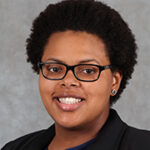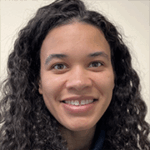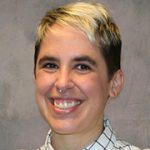JEDI Corner: Student Travel Funding Needed to Improve Access to Profession
Therri Usher, Lydia Gibson, Brittney Bailey, and Yates Coley
The Justice, Equity, Diversity, and Inclusion (JEDI) Outreach Group Corner is a regular component of Amstat News in which statisticians write about and educate our community about JEDI-related matters. If you have an idea or article for the column, email the JEDI Corner manager.

Therri Usher

Lydia Gibson

Brittney Bailey

Yates Coley
My first ASA conference was the 2021 Joint Statistical Meetings. Since it was held virtually, my only expenses were the $100 student registration fee and $25 add-on fee for the Career Service. JSM was a transformative experience for me both personally and professionally, as it gave me the opportunity to meet folks who would provide me opportunities I otherwise would not have known about. After connecting with her during the JSM First-Time Attendee Orientation, I began an informal mentor-mentee relationship with Theresa Utluat, senior principal engineer and director of statistics and data science technology development at Intel Corporation. Early on in our talks, we discussed the fact that women—especially those of color—are less likely than men to apply for jobs that they don’t meet 100 percent of the qualifications for. Months later, this insight would give me the needed encouragement to apply for and obtain an internship with Intel, which in turn led to a return offer as a full-time data scientist following graduation from my MS statistics program. – Lydia Gibson
Broad exposure to the field, good mentorship, and a strong network are essential to career development. Early access to conferences creates opportunities for students to establish relationships and explore the field. For students with marginalized identities, a conference may be the first place they encounter other statisticians with similar identities, which could contribute to a sense of belonging in the field. However, equitable accessibility to conferences is not always available for these students. The financial cost of attending conferences is often a prohibitive factor.
While many conferences do offer student travel awards to offset the cost of attendance, the student awards do not always cover the full cost of registration and travel. Even if they do, most require students to pay for their expenses out of pocket, with the promise of reimbursement at a later time. Without the disposable income to pay for conference expenses up front, some students go into debt to produce the needed funds. And reimbursements can often take weeks—weeks in which students accrue interest on their debt.
There are also students who are unable to obtain travel awards, such as those early in their graduate program who do not have research to present. Nevertheless, these students can benefit by attending conferences, particularly in building their professional network.
So how can we fix this? Like most problems, there is no one solution. Solutions will look different for each conference, each student, and each department, but the following changes can be implemented to improve accessibility:
- Funding can be provided up front, not via reimbursement.
- Departments can prioritize funding for student travel in their budgets.
- Advisers, particularly in soft money environments, can help students access grant funding.
- Conferences can have free or greatly reduced registration fees for students.
- Conference planners can select less-expensive locations as host sites.
- Conferences can provide food for students to reduce their out-of-pocket cost.
If we are serious about increasing diversity in the field and promoting equity and inclusion, we need to reduce barriers to accessing the profession, especially for students. Improving students’ access to conferences will eliminate a major barrier.


















Leave your response!